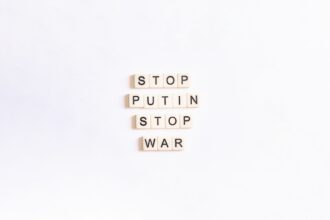The Russian military has long been a subject of scrutiny, particularly regarding the quality of its equipment and the effectiveness of its operational capabilities. In recent years, various reports and analyses have highlighted significant quality control issues that have plagued the Russian armed forces. These problems not only affect the performance of military hardware but also raise questions about the overall readiness and reliability of the military in times of conflict.
As Russia continues to assert its influence on the global stage, understanding the implications of these quality control issues becomes increasingly critical. Quality control in military operations is paramount, as it directly impacts the safety of personnel and the success of missions. The Russian military’s challenges in this area are multifaceted, stemming from historical practices, current operational demands, and broader economic and political factors.
This article aims to explore the historical context of Russian military equipment quality, the current challenges faced, and the implications for both national and international security.
Key Takeaways
- Russian military quality control has been a longstanding issue with historical roots.
- Current challenges facing Russian military quality control include outdated equipment and lack of investment in modernization.
- Quality control issues have a significant impact on Russian military effectiveness and readiness.
- Recent examples of quality control failures in the Russian military include accidents, malfunctions, and equipment breakdowns.
- Efforts to address quality control issues in the Russian military include modernization programs and increased investment in research and development.
Historical background of Russian military equipment quality
Historically, the Russian military has experienced a complex relationship with quality control in its equipment production. During the Soviet era, the focus was often on quantity over quality, leading to a vast array of military hardware that was sometimes unreliable. The emphasis on mass production resulted in equipment that could be produced quickly but often lacked the necessary attention to detail and rigorous testing protocols.
This legacy has continued to influence contemporary practices within the Russian military-industrial complex. The dissolution of the Soviet Union in 1991 marked a significant turning point for Russian military equipment quality. The subsequent economic turmoil led to a decline in funding for defense projects, which further exacerbated existing quality control issues.
Many factories that had once produced high-quality military hardware struggled to maintain standards due to outdated technology and insufficient investment. As a result, the Russian military found itself relying on aging equipment that was often ill-suited for modern warfare.
Current challenges facing Russian military quality control

In recent years, the Russian military has faced numerous challenges that have hindered its ability to ensure high-quality standards in equipment production. One significant issue is the lack of adequate funding for research and development. While there have been efforts to modernize the armed forces, budget constraints have often limited investments in new technologies and innovations.
This has resulted in a reliance on older systems that may not meet contemporary operational requirements. Additionally, corruption within the defense sector has further complicated quality control efforts. Reports of embezzlement and mismanagement have surfaced, indicating that funds intended for improving military capabilities are often diverted or misused.
This not only undermines the integrity of the procurement process but also leads to subpar products being delivered to the military. The combination of insufficient funding and corruption creates a challenging environment for maintaining high standards in military equipment.
Impact of quality control issues on Russian military effectiveness
| Quality Control Issues | Impact on Russian Military Effectiveness |
|---|---|
| Lack of maintenance | Decreased operational readiness of equipment |
| Defective equipment | Reduced combat capability |
| Supply chain issues | Logistical challenges and delays |
| Training deficiencies | Lowered overall combat effectiveness |
The implications of quality control issues within the Russian military are profound and far-reaching. Equipment failures can lead to catastrophic consequences during operations, jeopardizing not only mission success but also the lives of soldiers. Instances of malfunctioning weaponry or unreliable vehicles can severely hinder operational effectiveness, leading to diminished confidence among troops and commanders alike.
Moreover, these quality control challenges can affect Russia’s strategic posture on the global stage. As the country seeks to project power and influence, any perceived weaknesses in its military capabilities can embolden adversaries and undermine deterrence efforts. The inability to deliver reliable and effective military hardware may also impact Russia’s ability to engage in international arms sales, further isolating it from potential allies and partners.
Examples of recent quality control failures in Russian military
Recent conflicts have highlighted several instances of quality control failures within the Russian military. For example, during the conflict in Ukraine, reports emerged of malfunctioning tanks and armored vehicles that failed to perform as expected in combat situations. These failures not only compromised operational effectiveness but also raised questions about the reliability of Russian military technology.
Another notable example occurred during Russia’s involvement in Syria, where various air defense systems reportedly struggled to engage enemy aircraft effectively. The inability of these systems to perform their intended functions not only exposed vulnerabilities within Russia’s military capabilities but also drew criticism from both domestic and international observers. Such incidents serve as stark reminders of the consequences of inadequate quality control measures.
Efforts to address quality control issues in the Russian military

In response to these ongoing challenges, the Russian government has initiated several efforts aimed at improving quality control within its military-industrial complex. One significant step has been the establishment of stricter regulations and oversight mechanisms for defense contractors. By implementing more rigorous testing protocols and accountability measures, authorities hope to enhance the reliability of military equipment.
Additionally, there has been a push for increased collaboration between defense manufacturers and research institutions. By fostering innovation and encouraging the development of new technologies, Russia aims to modernize its military capabilities while addressing existing quality control issues. These efforts reflect a recognition of the need for systemic change within the defense sector to ensure that equipment meets contemporary standards.
Comparison of Russian military quality control with other global military powers
When comparing Russian military quality control with that of other global powers, significant disparities become evident. Countries such as the United States and members of NATO have established robust quality assurance processes that prioritize rigorous testing and evaluation before equipment is deployed. These nations invest heavily in research and development, ensuring that their armed forces are equipped with cutting-edge technology that meets high standards.
In contrast, Russia’s historical emphasis on quantity over quality has left it at a disadvantage in this regard. While recent efforts have been made to improve quality control measures, they still lag behind those implemented by other major military powers. This disparity raises concerns about Russia’s ability to compete effectively on the global stage, particularly as technological advancements continue to reshape modern warfare.
Implications of Russian military quality control issues for international security
The quality control issues facing the Russian military have significant implications for international security dynamics. As Russia seeks to assert its influence in various regions, any weaknesses in its military capabilities could embolden adversaries and alter power balances. Nations observing Russia’s struggles with equipment reliability may feel more confident in challenging its interests or engaging in confrontational postures.
Furthermore, these quality control challenges could impact Russia’s relationships with other countries that rely on its military technology. If potential buyers perceive that Russian equipment is prone to failure or lacks reliability, they may seek alternatives from other suppliers. This could lead to a decline in Russia’s arms export market, further isolating it from key allies and partners.
Economic and political factors contributing to Russian military quality control issues
Several economic and political factors contribute to the ongoing quality control issues within the Russian military. The country’s economy has faced significant challenges in recent years, including sanctions imposed by Western nations following geopolitical conflicts. These sanctions have limited access to advanced technologies and foreign investment, hindering modernization efforts within the defense sector.
Additionally, political instability and corruption within government institutions have created an environment where accountability is often lacking. The intertwining of political interests with defense procurement processes can lead to suboptimal decision-making, resulting in contracts awarded based on favoritism rather than merit. This further exacerbates existing quality control problems and undermines efforts to improve military capabilities.
Future prospects for improving Russian military quality control
Looking ahead, there are both challenges and opportunities for improving quality control within the Russian military. The government recognizes the need for reform and modernization; however, achieving meaningful change will require sustained commitment and investment. Addressing corruption within the defense sector will be crucial for ensuring that resources are allocated effectively toward enhancing equipment reliability.
Moreover, fostering collaboration between defense manufacturers and research institutions can drive innovation and technological advancements. By prioritizing research and development initiatives, Russia can work toward producing high-quality military hardware that meets contemporary operational demands. However, overcoming entrenched practices and cultural attitudes within the defense sector will be essential for realizing these goals.
Conclusion and recommendations for addressing Russian military quality control issues
In conclusion, the quality control issues facing the Russian military present significant challenges that impact its operational effectiveness and international standing. Historical practices, current economic constraints, and political factors all contribute to these ongoing problems. To address these issues effectively, it is essential for Russia to implement comprehensive reforms within its defense sector.
By prioritizing these initiatives, Russia can work toward enhancing the reliability of its military equipment and ensuring that its armed forces are better prepared for future challenges on both national and international fronts.
The Russian military has been facing significant challenges with quality control, impacting its operational effectiveness and strategic capabilities. A related article on this topic can be found on In The War Room, which delves into the intricacies of these issues and their implications for Russia’s military readiness. For a more detailed analysis, you can read the full article by visiting In The War Room. This resource provides valuable insights into the systemic problems plaguing the Russian military and offers a comprehensive overview of the potential consequences on the global stage.
WATCH NOW! 🎖️ Plot Twist: Russia’s Military Is Being Eaten Alive By Its Own Corruption
FAQs
What is the Russian military’s problem with quality control?
The Russian military has faced issues with quality control in its equipment and weapons, leading to concerns about reliability and safety.
What are some examples of quality control issues in the Russian military?
Examples of quality control issues in the Russian military include faulty ammunition, defective weapons, and substandard equipment.
How have quality control issues affected the Russian military’s operations?
Quality control issues have affected the Russian military’s operations by leading to equipment malfunctions, accidents, and decreased combat readiness.
What steps is the Russian military taking to address quality control issues?
The Russian military has taken steps to address quality control issues by implementing stricter testing and inspection procedures, as well as investing in modernizing its equipment and weapons.
What are the potential consequences of the Russian military’s quality control problems?
The potential consequences of the Russian military’s quality control problems include decreased effectiveness in combat, increased risk to personnel, and damage to the military’s reputation.




